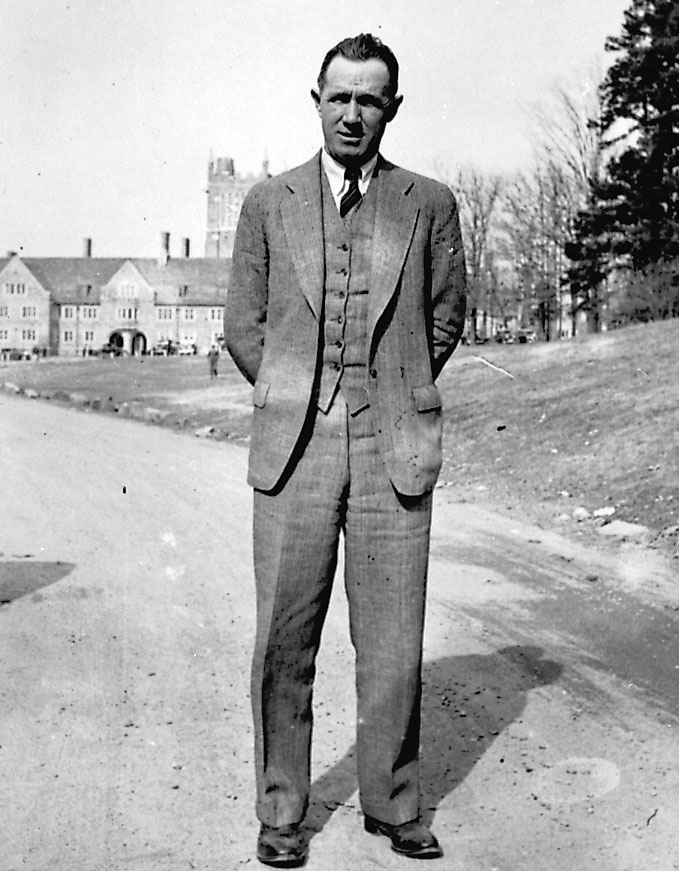Wallace Wade was much more than the namesake of Duke’s football stadium. The Hall of Fame coach is credited with elevating the Blue Devils football team to national status, which included coaching Duke in two Rose Bowls (1939, 1942).
Known as a perfectionist, Wade centered his coaching on a simple adage: “The best you can do is not enough unless it gets the job done.”
His prowess was perhaps best shown by his 1938 “Iron Duke” team, which went unbeaten and unscored upon until a 7-3 Rose Bowl loss on a late USC Trojans touchdown.
Wade’s other battles were far more profound. He served as a cavalry captain during World War I, then reenlisted in his 50s to fight during World War II. He witnessed the Battle of Normandy, the Siegfried Line Break, the Battle of the Bulge and the Crossing of the Rhine and received a Bronze Star medal.
After the war, Wade returned to Duke as director of athletics then resumed as head football coach.
Wade had coached at Alabama before coming to Duke, where he led the Crimson Tide to three Rose Bowl appearances.
His won-loss record was 110-36-7 at Duke and 171-49-10 career. In 1950, he left Duke to become commissioner of the Southern Conference.
“He was just very smart, … he was very innovative,” said Taylor Watson, an employee at the Paul Bryant Museum at Alabama.
“He could just out-coach you,” Watson said. “He had a habit of, especially with the good teams, he would start the second string first and after they’d whooped you for a while, you’d be like, ‘Oh my god here comes the first team, what are they going to do?’”



